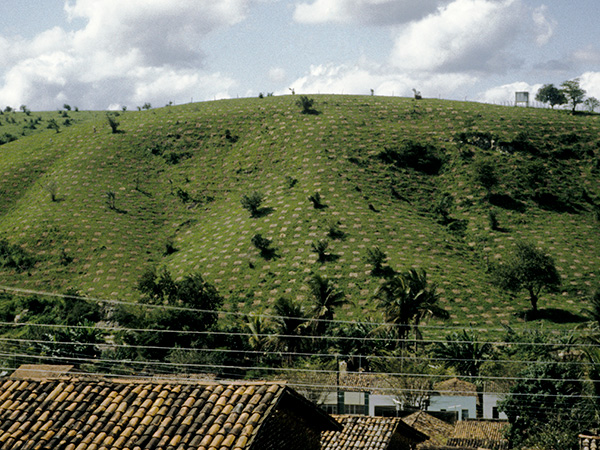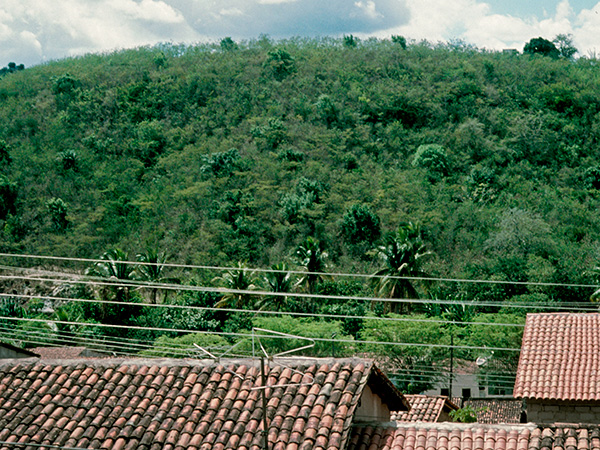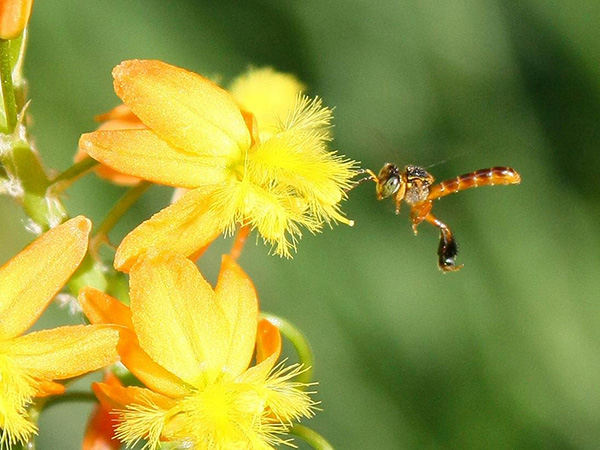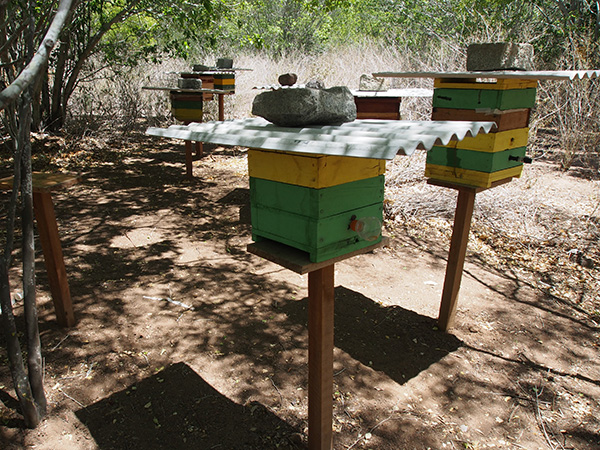Projects around the Reserve
Reforestation
From 1989, native trees plantations and nursery have been installed around the forest. The aim is to open up the forest, by creating forest corridors. Trees are planted around the sources and along the rivers to stabilise water flow and to create new lanes for the fauna.
Progressively, reforestation’s projects in Pedra Talhada have become known in the whole country. This is how dozens of nurseries have been created across Brazil and six million native trees have been planted to this day.
The population understands that forests are essential for the regulation of precipitation, the climate of the planet and the conservation of biodiversity. Tropical forests are home to the largest diversity of organisms in the world, and although they represent a small area, they harbor more than half of all the species of animal and plant in the whole world.
Tree plantations around the Pedra Talhada Reserve continue to this day.


Meliponas native bees
Nordesta Association set up a breeding and care project for bees. It provides technical know-how and provides hives to the future beekeepers.
The project aims to support families from rural areas in their efforts to preserve forests. It tends toward a harmonious coexistence between men and the forest. As long as men understand the economical value of the trees, and as long as these trees allow them to support their families, the forest will remain safe.
The sale of honey and other products from the hive could encourage men not to sacrifice trees, because bees feed and produce honey with their flowers. To this day, 14'500 hives have been installed around several forests and the results reach the goals, helping to preserve the forest.
The project is appreciated because Meliponas native bees don’t require any special clothes ; these bees don’t have sting. Hives can be installed close to the houses and the work is then accessible for all the generations, from the grandparents to the children. Melipona native bees’ honey is very popular with the population and is easily sold.


Education and vocational training
The destruction of forests has a direct influence on the rural exodus and leads to the extension of the slums and the impoverishment of the countrysides. It is therefore crucial to raise awareness from young people on the value of the environment and the necessity to preserve it, to avoid them to leave their homelands, hoping for a better future in the big cities.
To this purpose, the NGO Nordesta built several schools and vocational training workshops, such as carpentry, sewing, screen printing, drawing, ceramics, sculpture and horticulture.